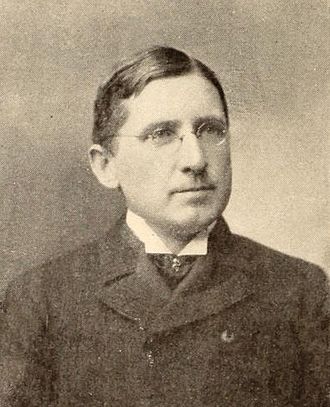Discover Your Roots
SIGN UPDiscover Your Roots
SIGN UPMerton is a gender-neutral English name that holds the meaning "From The Lake Town." This name has a serene and picturesque origin, evoking images of tranquil waterside communities. It is a name that carries a sense of peacefulness and connection to nature. Notably, Merton has been borne by individuals across various fields, including sports, academia, and politics, demonstrating its versatility and adaptability. Some notable bearers of the name include Montague Merton Barker, Merton Hanks, and Merton E. Davies. With its gender-neutral appeal and serene meaning, Merton is a name that resonates with individuals seeking a connection to nature and a sense of calm.

Merton Edward Hanks, born on March 12, 1968, is a former American professional football player known for his illustrious nine-season career as a safety in the National Football League (NFL). His prime playing years were with the San Francisco 49ers during the 1990s, where he achieved remarkable success, being a five-time All-Pro and four-time Pro Bowl selection. Hanks also played a pivotal role in the 49ers' Super Bowl XXIX victory. Prior to his NFL career, Hanks excelled in college football at the University of Iowa, earning All-American honors in 1990. Despite being a fifth-round draft pick due to his slow 40-yard dash times, Hanks proved his worth with outstanding performances, earning numerous accolades and gaining recognition for his interceptions and unique "chicken dance" celebrations. After retiring from professional football, Hanks transitioned to an executive role, serving in various capacities within the NFL and later becoming a senior associate commissioner for both Conference USA and the Pac-12. Additionally, Hanks is a sought-after speaker, often engaging in speaking tours.

Merton Elmer Lewis (December 10, 1861 – May 2, 1937) was an American lawyer and politician, best known for his service as the 51st Attorney General of New York state. Born in Webster, Monroe County, New York, Lewis had a strong educational background, graduating from Webster Union School and later studying law with James B. Perkins in Rochester. He began his legal practice in Rochester after being admitted to the bar in 1887. Throughout his career, Lewis held various positions, including alderman of Rochester, President of the Common Council, Acting Mayor of Rochester, and later, a member of the New York State Assembly and Senate. In 1917, he was elected New York Attorney General and remained in office until 1918. Despite his significant political roles, Lewis declined to run for re-election as Attorney General in 1918, opting to enter the Republican primary for governor instead. Throughout his career, Lewis was involved in various political movements and elections, making notable contributions to the political landscape of New York state. He passed away on May 2, 1937, in Rochester, New York.

Montague Merton Barker (20 July 1867 – 12 January 1954) was a prominent English cricketer and field hockey player. Born in Paddington, he received his education at Radley College. Barker's cricket career included a tour of the West Indies with R. S. Lucas' XI in 1894–95 and several first-class appearances, showcasing his skills on the field. Beyond cricket, he also made a mark in field hockey, serving as a half-back for England and even captaining the national team in 1898. His contributions to both sports remain noteworthy. Barker passed away in January 1954 at Epsom Downs. His legacy lives on as a testament to his prowess in cricket and field hockey, leaving an indelible mark on the sporting world.

Merton Lynn Dillon (April 4, 1924 – May 3, 2013) was a distinguished history professor and author in the United States, known for his insightful writings on slavery and abolitionism. Born in Addison, Michigan, Dillon embarked on a prolific academic journey, obtaining a Master of Arts from the University of Michigan in 1948 and a PhD in 1951. His illustrious career saw him teaching at esteemed institutions such as the New Mexico Military Institute, Texas Tech College, Northern Illinois University, and Ohio State University. In addition to his teaching and writing, Dillon made significant contributions as a member of The Journal of Southern History's Board of Editors, chairing committees and earning a senior fellowship from the National Endowment for the Humanities.Dillon's notable literary works include "Elijah P. Lovejoy: Abolitionist Editor," "Benjamin Lundy and the Struggle for Negro Freedom," "The Abolitionists: The Growth of a Dissenting Minority," "Ulrich Bonnell Phillips: Historian of the Old South," and "Slavery Attacked: Southern Slaves and Their Allies, 1619–1865." He also penned impactful articles on the antislavery movement and the abolitionists, leaving a profound mark on historical scholarship. Dillon's legacy continues to inspire and educate, preserving his invaluable contributions to American history and the study of abolitionism.

All images displayed on this page are sourced from Wikipedia or Wikimedia Commons.We use these images under their respective Creative Commons or public domain licenses. Wherever applicable, author attributions and license information are provided. If you believe an image is used incorrectly or outside its license terms, please contact us so that we can review and correct the issue.